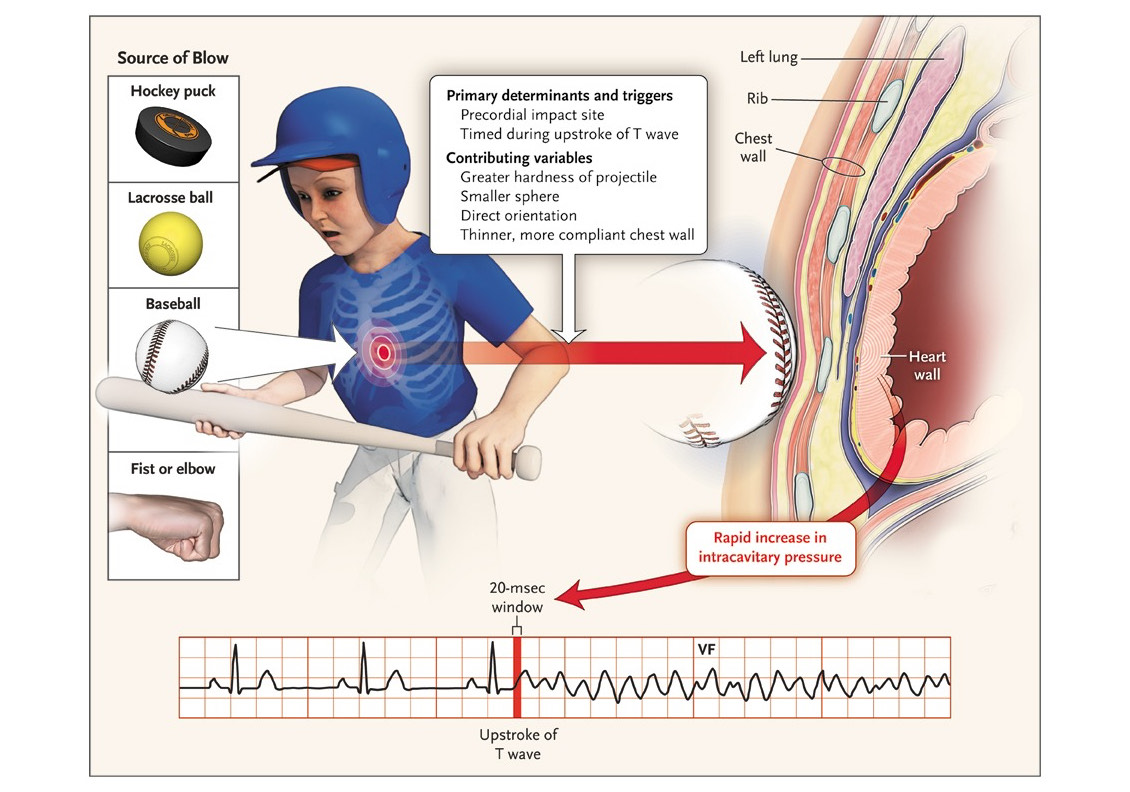Samuel Edusa MD
Heart Stopped in a Heartbeat: The Dangers of Commotio Cordis
Samuel Edusa | Jan 4, 2023
 (Source: New England Journal Of Medicine (NEJM))
(Source: New England Journal Of Medicine (NEJM))
What is Commotio Cordis?
Commotio cordis is a rare but serious condition that occurs when the heart is unexpectedly stunned or jarred as a result of a blunt impact to the chest. It is most common in young athletes participating in contact sports such as American football, hockey, and lacrosse, but it can affect anyone.
The impact does not have to be very hard to cause commotio cordis, and it can occur even if there is no visible injury to the chest. It is caused by a sudden, blunt impact to the chest that occurs during a narrow window of vulnerability in the heart's electrical cycle, which can cause the heart to stop beating effectively and lead to cardiac arrest.
How is this condition managed?
The management of commotio cordis involves providing cardiopulmonary resuscitation (CPR) and defibrillation as soon as possible to restore normal heart function. It is important to act quickly, as survival rates decrease significantly with each passing minute. Other treatment options may include medications to support blood flow to the heart and body, and supportive care such as oxygen therapy and monitoring of vital signs.
Prevention
Prevention of commotio cordis may involve using protective equipment such as chest protectors or padding in contact sports, and ensuring that individuals who are at risk of commotio cordis are trained in CPR and have access to defibrillation equipment. It is also important for coaches, athletes, and other individuals to be aware of the signs and symptoms of commotio cordis and to seek medical attention immediately if they suspect that someone may be experiencing this condition.
In conclusion, commotio cordis is a rare but serious condition that requires immediate medical attention. By being aware of the risks and knowing how to respond, we can work to prevent and manage this condition to ensure the safety and well-being of all individuals.
Further reading
Here is a detailed blog article written by a colleague and friend Collins A. Kwarteng MD, FACC, titled "The near tragedy during Monday Night Football - The Damar Hamlin Incident. Was It Commotio Cordis?".
